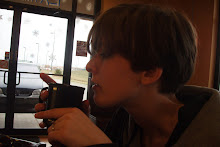Question: How do Happenings relate to Camp?
Background: Ok, I'm going to start very simple here, by outlining the difference between a Happening and a performance. Please note that I am still by no means an authority on Camp, so please correct me if I get way off target.
Santag describes a Happening as painting brought to life, a radical juxtaposition in which we discard the common notions of character, set, and prop; all of these simply become part of the composition. Unlike a performance, as we commonly think of it, a Happening has no plot, no stage, and no set duration. The audience becomes a part of the Happening, and they are often treated in an abusive manner (in one such occasion, the audience was chased off by a power lawnmower at the end of the spectacle). It is also important to note that the participants in a Happening are treated as objects, not as characters, and that the materials of these events are often consumed or destroyed during the event, making them altogether impossible to reproduce, as a performance would be.
The notion of Camp is slightly more elusive than that of a Happening. Camp is a sensibility; it takes art objects and transforms them into "not art," but doing so lovingly. It is evident that Happenings are not always Camp, so making the relationship is difficult. So let's boil the Happening down to its base: radical juxtaposition. The Happening is a sort of continuation of the Surrealist movement, some of which Santag find, carries a camp sensibilty. There is something witty, playful, and unconcerned about the Surrealist work. Perhaps this is because of the general absurdity brought about by this radical juxtaposition. So, despite the violent nature of the Happening, the spectator enters light-hearted and comes out laughing (on a better thought, it is probably more often the participant who comes out laughing).
Conclusion: The Happening is radical juxtaposition to an obsurdity; it is a violent comedy. Absurdity often lends itself to Camp, often seen as "bad taste." Camp, in all of its many forms, reverses the hierarchy of art. It is "art," it is "not art," it is Camp.
Subscribe to:
Post Comments (Atom)

No comments:
Post a Comment